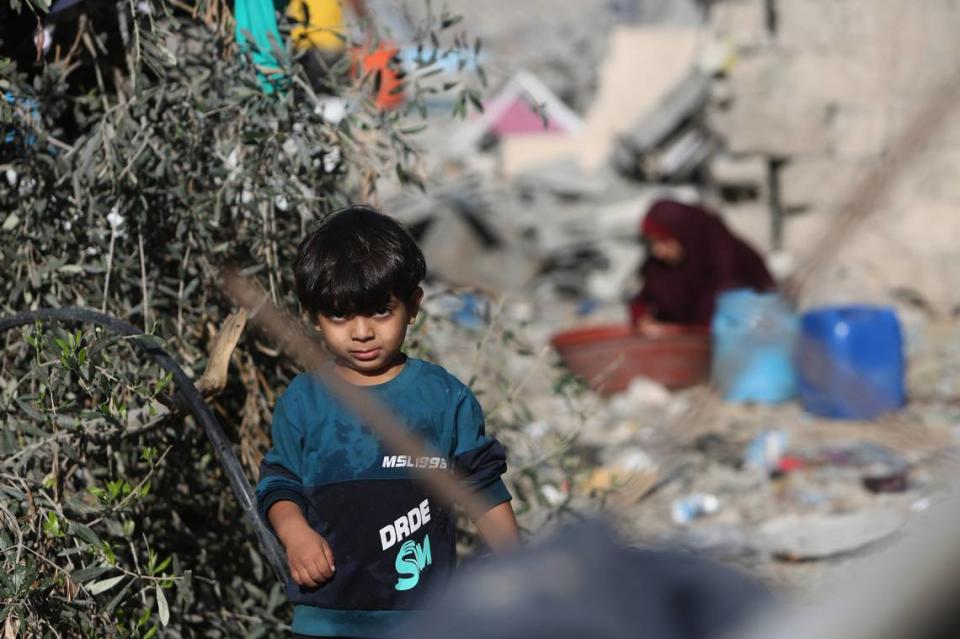It’s easy to dehumanize people on both sides of Middle East conflict. Let’s change that. | Opinion
For 25 years, I have led academic trips to Israel and Palestine. Although we always visit religious sites, our itinerary also schedules time to meet people who live on both sides of the Separation Barrier between Israel and the West Bank. My purpose is simple: to humanize these so-called “others.”
As horrific images of murder and destruction consume the media and pundits play the blame game, I want us to pause for a moment and remember the people—innocent civilians—friends of mine—who call this land home and who disproportionately suffer the ravages of war.
Allow me to introduce six of them to you, but not with their real names, of course.
My friend David is an Israeli archaeologist. David once rappelled into the Cave of Letters in the Judean desert where letters from the Roman era were found, including correspondence between Bar-Kokhba, the leader of the Second Jewish revolt (132-135 CE), and his subordinates. David entertained me one night with stories of how he personally dodged Jordanian soldiers in Jerusalem during the Six-Day war. Although he possesses encyclopedic knowledge of the land, it is not enough to protect him from incoming missiles.
My friend Hasan is a Palestinian Muslim who is a licensed Israeli guide. When the Separation Barrier was built in 2002, Hasan was displaced from his Bethlehem home because the Barrier surrounded it on three sides. One day in the Aida refugee camp, I listened to him debate a prominent leader about the value of programs like “Seeds of Peace” where Palestinian and Israeli youth come together at a Maine summer camp. On my first trip to Hebron, he took me to the Tomb of the Patriarchs where in 1994 a Jewish settler murdered 29 Muslims. Today that holy space is subdivided into a mosque and a synagogue where each community, separated by bulletproof glass, can pray at the Tomb of Abraham.
My friend Daniel proudly calls himself a Zionist. Annually we share table fellowship where no subject is prohibited. Although we often disagree, it is always respectful. In a recent email exchange between us, he gently scolded me for referring to the current war as another “episode” in the cycle of violence. For him, the Hamas attack was “barbaric evil, pure and simple.” Daniel concluded that email with the words: “we have material for our next dinner discussion.” Judaism grounds Daniel’s identity. This war constitutes an existential threat to that.
My friend James is a Palestinian Christian. His family founded a reconciliation center in the West Bank. While guiding us in Bethlehem, James disclosed both the mental and physical stress that inevitably accompanies a Christian living in Israeli occupied territory which is overwhelmingly Muslim. His vulnerability is increasing by the day.
My friend Musa, a nonviolent Palestinian activist, was born in 1967, the year Israel occupied the West Bank. When we visited his home, he told us about the ongoing conflict with the Jewish settlers who had seized their only spring. I shall never forget his words: “The spring is the face of the occupation. The occupation is illegal, and we have the right to struggle against it.” A few years ago, Musa’s son was killed by IDF soldiers. With him, I ask, “how many more sons and daughters must die?”
My friend Mary, an American Catholic, met her French husband, at that time a novice monk, in Syria while she was there studying Arabic. We talked with her in a Jerusalem ecumenical center. In her books, Mary uses her own story to interpret the fragile Middle East. She affirms the concept of “horizontal resurrection” (heaven on earth), a seemingly remote idea.
When we gather with family and friends this coming holiday season and discuss the complexities and the carnage of the Israel-Hamas war, let us remember these people—these innocent civilians—who are first and always human beings.

Paul H. Jones is a Professor of Religion Emeritus at Transylvania University.


